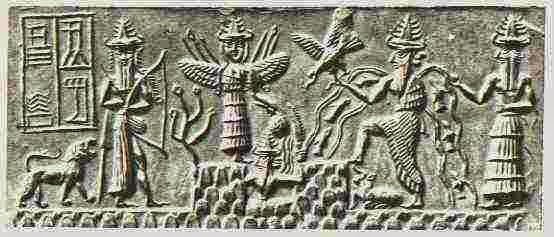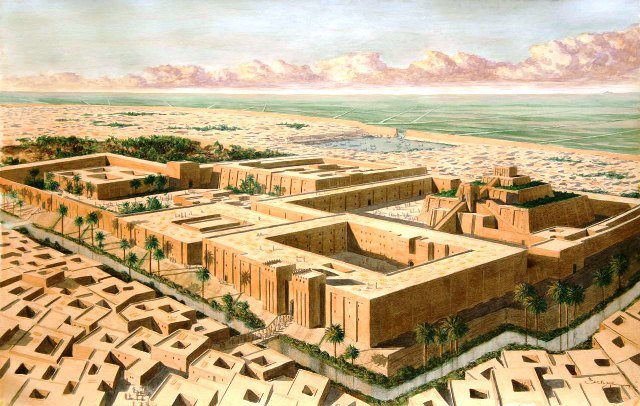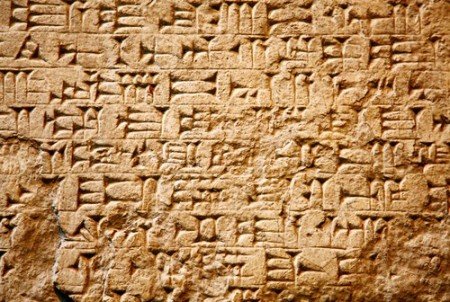

Mesopotamia 4000 B.C.
Throughout the history of Mesopotamia, the Sumerians are considered the first human civilization itself. They occupied the territory between the Tigris and Euphrates rivers around 4000 a.c.
The first core Sumerian settlements moved from the Iranian plateau to finally settle in the Chaldean region, which includes the downtown Mesopotamia.
Quish, was the first city to be founded, and immediately afterwards, Eridu, Ur, Uruk and Lagash.
Sumerian cities were independent of each other, in each of them a priest who had the help of a group of elders, taking key political decisions ...

However, in a moment of history that way of ruling elders is replaced by the monarchy, passing power by heirs, thus forming the first dynasties.
One of the most important contributions of the Sumerians was the development of cuneiform, the first written.
They used a clay plate on which the characters imprinted with the help of sticks, was then dried in the sun, and soon after, hardened by fire. Only then managed to stay preserved to date today.
In fact, the Sumerians produced an extensive literary work, in which there are poems, laws, codes and other narratives, such as the creation of humanity by a strangest gods.

Around the year 2350 B.C. the Sumerian civilization collapsed, giving opportunity to Akkadians which built a powerful empire.
The Akkadians, who were Semitic and nomadic origin in the desert of Syria, trying to escape a drought settled in an area north of the Sumerian areas starting to gain power quickly, achieving its independence in subsistence, military and political organization.
It was from this position of influence on the weakened Sumerian civilization, which the Akkadians managed to conquer and subjugate later.
The formation of the Akkadian empire preserved many elements of Sumerian culture, but one of the most important elements of civilization that was his language, was slowly disappearing ...
Thus ended the Sumerian civilization.
Namaste
(Images by Google)